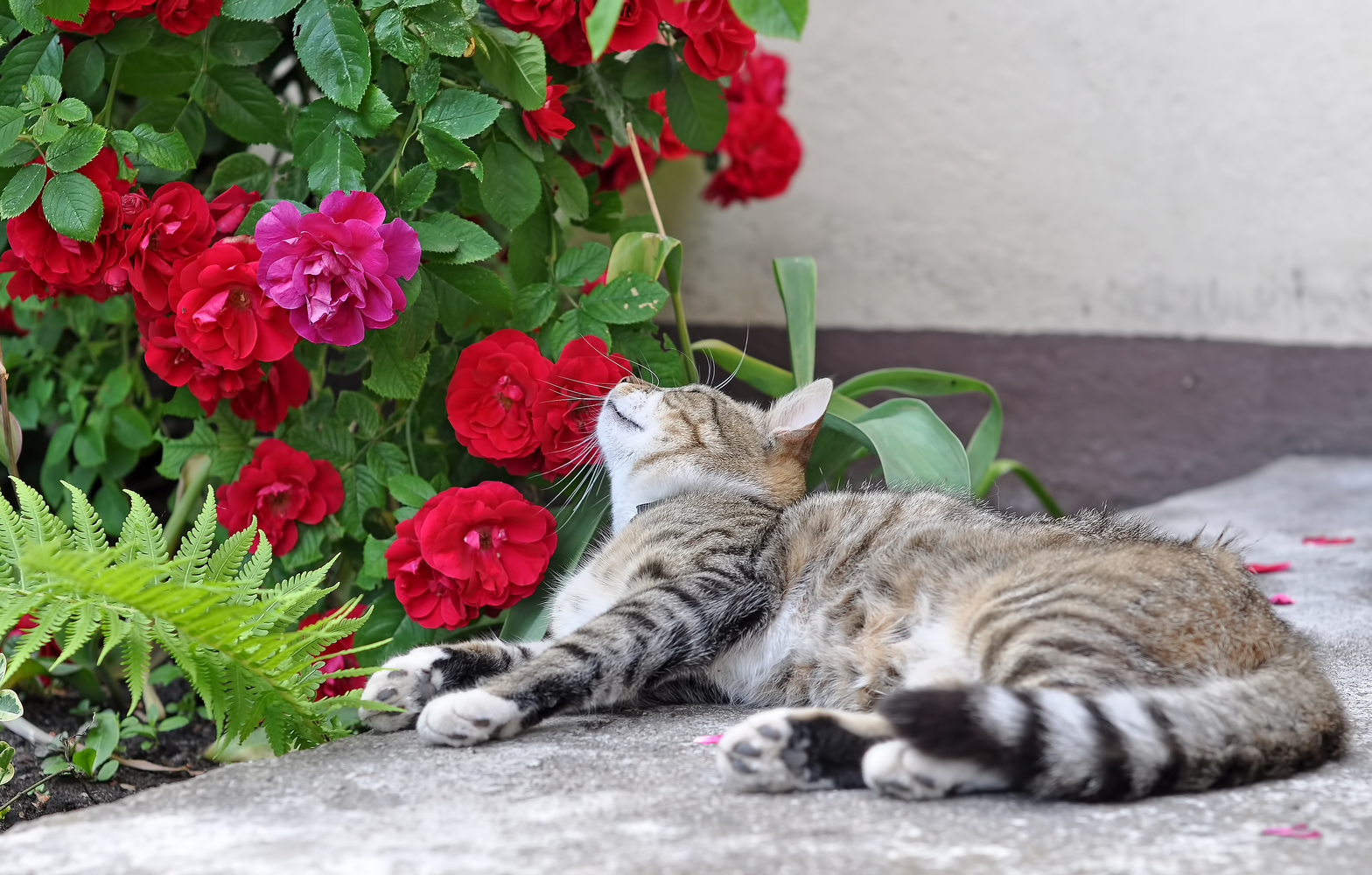
Houseplants That Are Toxic for Cats
Kitties love to nibble on leaves. Cats eating plants is completely normal and there are actually some pet owners who even grow cat grass that cats can eat and enjoy. Basically, cats eat plants either out of boredom, curiosity, or because they have an upset tummy. But you need to be aware that there are some indoor and outdoor plants that can be potentially fatal and toxic to your pet cat’s health.
Let’s take a peek at some of the houseplants that are bad for your pet:
1. Lilies
There are many houseplants that can cause everything from rashes to an upset tummy in cats. Out of all these toxic plants, lilies are by far the most fatal for your feline. Though many of the adult cats keep away from nibbling on the leaves and flowers, you as pet owners need to be aware of the toxicity of this houseplant. Peace lilies make your cat sick but they, fortunately, don’t end up with acute kidney failure like some other species of lilies do.
2. Monstera
Monstera deliciosa, otherwise known as the Swiss cheese plant, is highly toxic to cats. Just one bite out of this plant can land them in severe pain. Fortunately, cats generally leave this plant alone, as they prefer nibbling on stringer leaves. The symptoms of consuming this plant include drooling, pawing at the mouth, throat and mouth pain, irritation in the oval cavity, and trouble swallowing.
3. Jade plant
Jade plants, also referred to as rubber plants or money trees, are making a come-back in households. Unfortunately, these plants are also toxic to cats. If your cat nibbles too much of the Jade plant, it could be fatal. Jade plants have big leaves; hence keeping them out of the cat’s reach can prove to be difficult. The symptoms of Jade plant poisoning include loss of muscle function, vomiting, and a slower heart rate. Cats with Jade plant poisoning should be treated by a veterinarian without fail or it may be quite fatal.
4. Aloes
Aloes are very common houseplants that can be kept indoors or outdoors. Some of the compounds that make the aloe useful can, unfortunately, be extremely toxic for felines. The symptoms of aloe poisoning in cats include diarrhea, loss of appetite, anorexia, and depression. The change in your cat’s health can be noticed in either several hours or days after he/she has nibbled on an aloe plant.
5. Devil’s ivy
They are also known as garden pothos and these are also common houseplants that you, as a pet owner, need to beware of. In case your feline friend chews on this plant, the calcium oxalate crystals found in all parts of this plant can cause your cat a great deal of pain. Visit a vet immediately.



